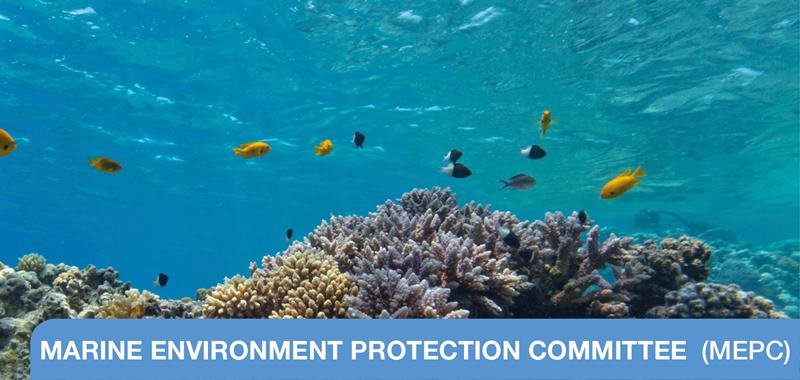The 80th session of the Marine Environment Protection Committee (MEPC) started today at the International Maritime Organization (IMO) Headquarters in London from 3 to 7 July 2023. This in-person session, featuring hybrid participation, will unite maritime experts, policymakers, and stakeholders to tackle critical environmental challenges in the shipping industry. Expect impactful initiatives that will shape the future of marine protection as this momentous gathering unfolds.
The MEPC 80 session will focus on several significant agenda items, with the adoption of an upgraded IMO greenhouse gas (GHG) strategy taking center stage. This revised strategy is expected to outline concrete targets for reducing greenhouse gas emissions in the shipping sector and propose a range of technical and economic measures to facilitate the sector’s transition towards carbon neutrality.
Among the key discussions to be held during the MEPC 80 session are:
- Tackling climate change – The International Maritime Organization (IMO) has developed global regulations on energy efficiency for ships and is taking concrete actions to ensure that international shipping contributes to addressing climate change. They are working towards adopting an upgraded IMO greenhouse gas Strategy that includes reduction targets for the sector and a range of technical and economic measures to phase out greenhouse gas emissions. They are also supporting developing countries in transitioning to low-carbon shipping and developing safety regulations for future marine fuels.
- Energy Efficiency – The IMO is considering draft amendments to the Data Collection System (DCS) to revise the ship fuel oil consumption reporting requirements. They are also reviewing the short-term GHG reduction measures, such as the Carbon Intensity Indicator (CII) rating and the Energy Efficiency Existing Ship Index (EEXI), which entered into force in 2022. The review will consider relevant data and propose any necessary amendments to these measures.
- Ballast water management – The IMO is expected to approve the Convention Review Plan (CRP) for the Ballast Water Management (BWM) Convention, which guides the comprehensive review of the convention over the next three years. They will also adopt amendments to the Ballast Water Record Book and discuss various matters related to the implementation of the BWM Convention, including guidelines for challenging water quality, ballast water record-keeping, storage of treated sewage and grey water, and the approval of modifications to ballast water management systems.
- Biofouling management – The IMO is set to adopt revised Guidelines for the control and management of ships’ biofouling. These guidelines aim to minimize the transfer of invasive aquatic species by addressing the accumulation of organisms on ships’ hulls. Effective biofouling management not only helps protect marine biodiversity but also improves fuel efficiency by reducing greenhouse gas emissions.
- Designation of a Particularly Sensitive Sea Area – The IMO is expected to designate a Particularly Sensitive Sea Area (PSSA) in the North-Western Mediterranean Sea to protect cetaceans from international shipping. The associated protective measures within the PSSA include recommendations for shipping, such as reduced speed and increased lookouts for cetacean sighting and collision reporting.
- Addressing underwater noise – The IMO will approve draft revised Guidelines for the reduction of underwater noise from commercial shipping. These guidelines aim to minimize the adverse impacts of underwater radiated noise on marine life. They provide technical recommendations, reference international measurement standards, and offer guidance for shipowners to develop underwater radiated noise management plans.
- Tackling marine litter – The IMO is working on recommendations for the carriage of plastic pellets in freight containers to address the risks posed by plastic pollution. They are also considering draft amendments to MARPOL to establish a procedure for reporting lost freight containers, which can pose hazards to navigation and the marine environment. Capacity-building initiatives are underway to support developing countries in implementing measures to prevent and reduce marine litter.
- Ship-to-ship transfers – The IMO will discuss the potential environmental risks and consequences associated with the increase in ship-to-ship transfers at sea. A draft Assembly resolution is proposed to raise awareness and address concerns regarding global marine pollution prevention and liability and compensation regimes related to ship-to-ship transfers.
- Special areas – The MEPC will determine the effective date for the Red Sea and the Gulf of Aden special areas under MARPOL Annexes I and V based on the availability of necessary reception facilities for wastes and residues in the ports and terminals within these areas.
- Other matters from the PPR Sub-Committee – The MEPC will adopt various guidelines and amendments, including the 2023 Guidelines for the development of the Inventory of Hazardous Materials, the Operational Guide on the Response to Spills of Hazardous and Noxious Substances (HNS), guidelines.
Source IMO

